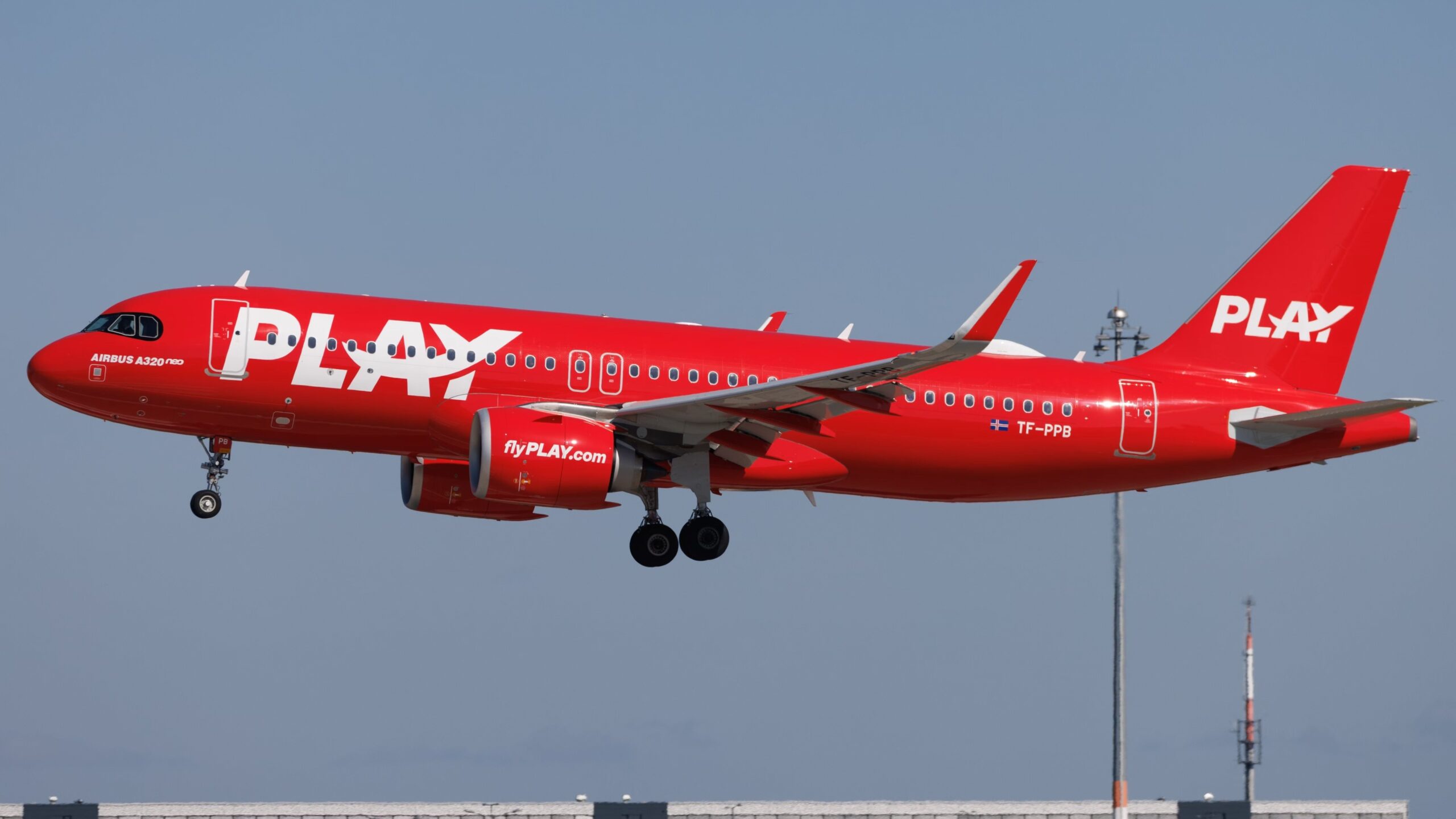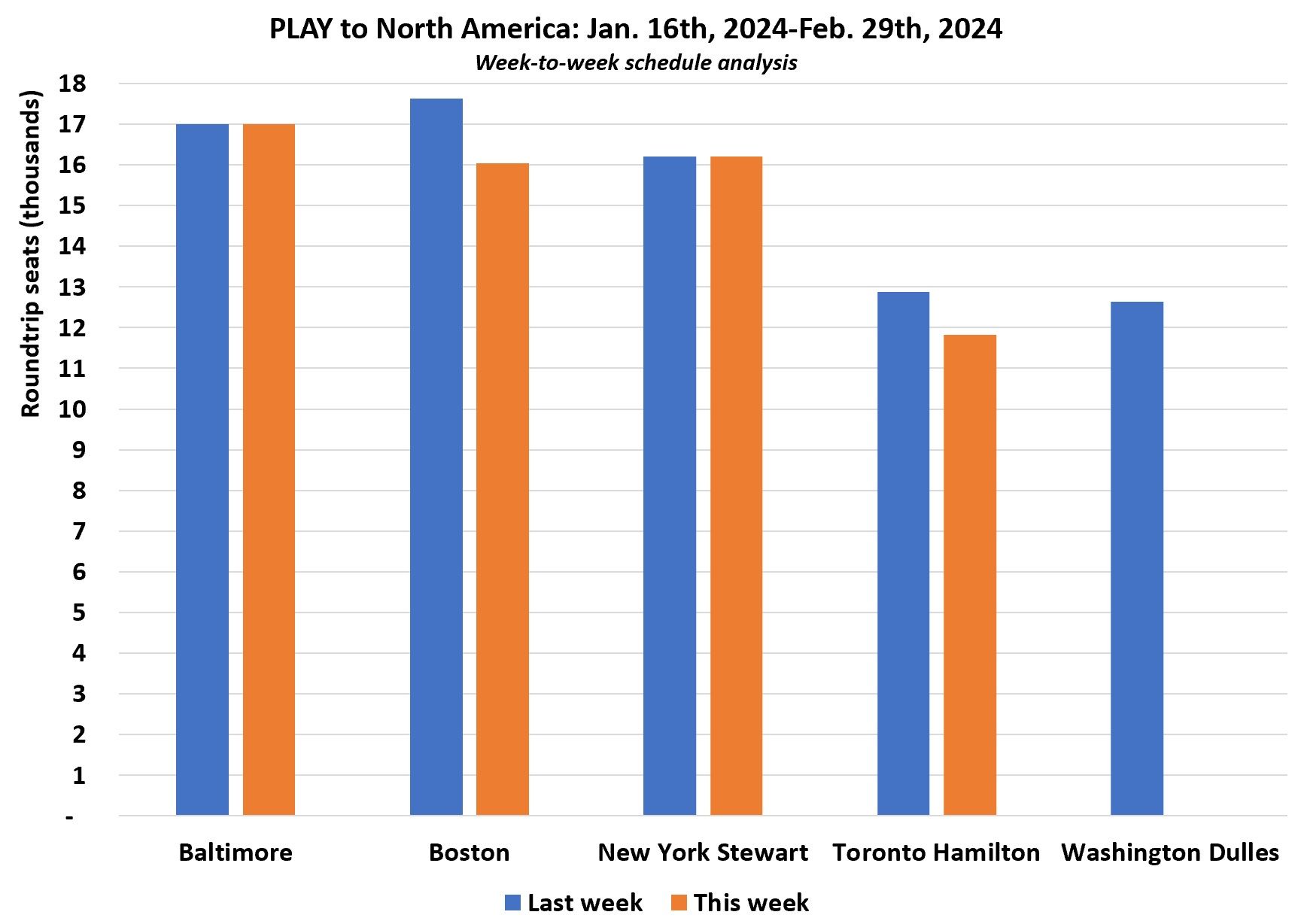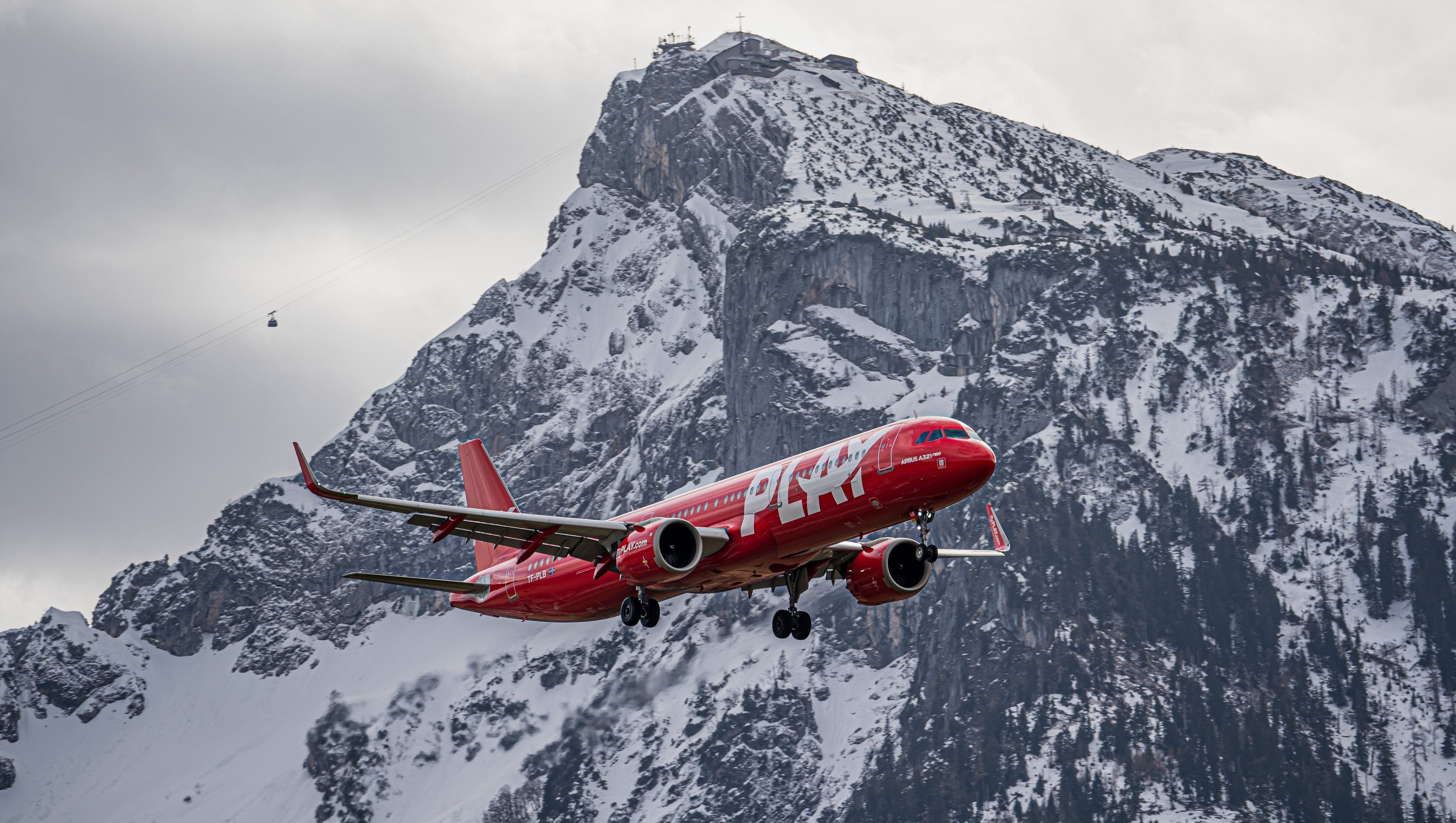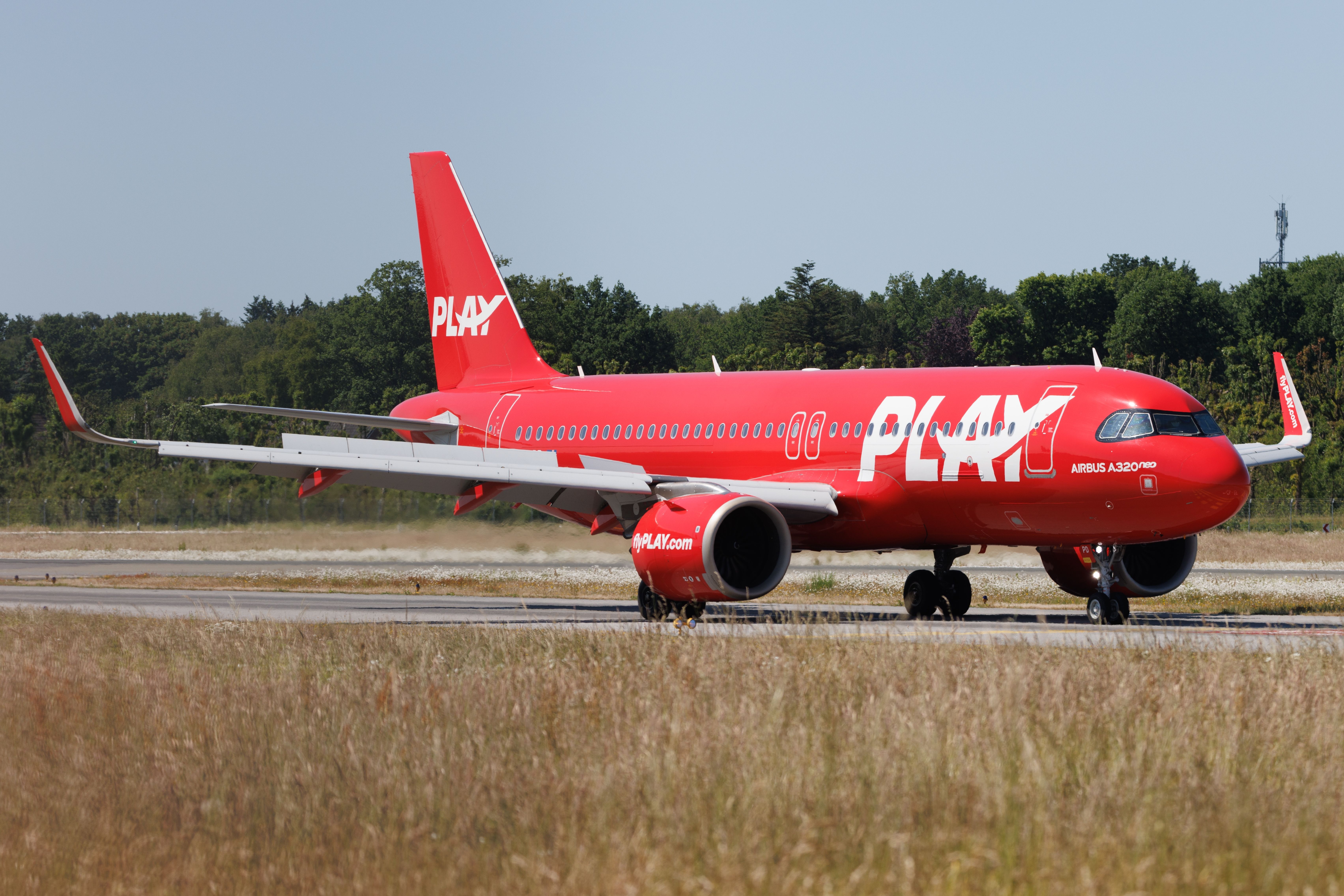Summary
- Due to low winter demand, PLAY won’t serve Washington Dulles from January 16th to February 29th.
- The suspension of flights means fewer North American seats for sale, hopefully increasing loads, fares, yields, and winter performance.
- It will still operate to Baltimore, Boston, New York Stewart, and Toronto Hamilton in this period.
Icelandic low-cost carrier PLAY will temporarily pause Keflavik to Washington Dulles flights, according to its latest schedule submission to Cirium. Do not read too much into this: it is only for a few weeks in January and February. Many airlines do it. Of course, others cut flights during the low season; Norse Atlantic, for example, is not operating between London Gatwick and Dulles this winter.
PLAY pauses Dulles
As confirmed to me by the airline’s CEO, Birgir Jonsson, PLAY will not serve Washington Dulles between January 16th and February 29th. The 2,799-mile (4,504 km) route, launched in April 2023, will return on February 30th, when it will be daily. During the suspension period, it will continue to operate daily to Baltimore.
For most airlines, winter is extremely hard to make work, with summer profits offsetting winter losses. While it varies by airline and route, November to mid-December and mid-January through the end of February tend to be particularly bad.
Reducing seats for sale, whether from downgauging aircraft, decreasing frequencies, or taking a temporary pause, may increase performance or contribute to lower losses.
Seats are down by a fifth
Using Cirium to analyze PLAY’s January 16th-February 29th schedule shows it will now have 61,060 roundtrip seats for sale between Keflavik and North America. Over 15,000 seats have been removed, equivalent to about one in five.
As the figure below shows, the lower capacity is not just from Dulles but also from minor, temporary reductions to Boston (its second route, launched in May 2022) and Toronto Hamilton (started in June 2023).
Source: Cirium. Figure: James Pearson
It all means less excess capacity relative to demand during one of the slowest periods for travel. The result should be higher loads – with the extra passenger volume vital for all-important ancillary revenue products, like bags and food – and stronger fares and yields.
Four routes will operate
In the examined January-February period, the following will operate, not all of which is reflected in its booking engine when writing:
- Keflavik to Baltimore: daily; A320neo, A321neo
- Keflavik to Boston: five weekly to daily; A320neo, A321neo
- Keflavik to New York Stewart: daily; A320neo
- Keflavik to Toronto Hamilton: four weekly to daily; A320neo
Photo: PLAY
US routes: April-July 2023
US DOT T-100 data for April-July (the most recent month available to me) shows that PLAY carried 158,442 roundtrip passengers. With 178,187 seats for sale, it filled an average of 89 in 100 seats, with the more demanded June-July obviously being higher (93.4%). Remember, it is always about how SLFs are achieved.
- Boston: 43,574 passengers; 90.2% SLF
- Baltimore: 44,288; 88.4%
- Washington Dulles: 31,017; 90.3% (influenced by starting in April)
- New York Stewart: 39,563; 87.1%
Stay aware: Sign up for my weekly new routes newsletter.
Photo: Kevin Hackert | Shutterstock
Interestingly, relating traffic to booking data suggests that far more passengers were point-to-point than transit. This is important, as P2P passengers are higher-yielding and less expensive to carry, with transfer traffic providing additional volume to drive higher loads and greater revenue.
What do you make of it all? Let us know in the comments.
Sources: Cirium, US DOT T-100, booking data, Birgir Jonsson




